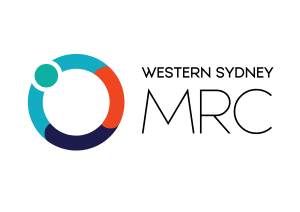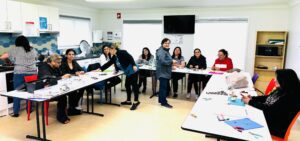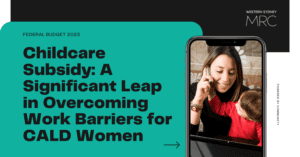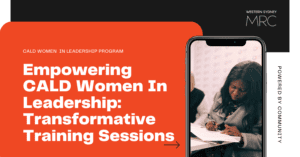Strengthening the Test for Australian Citizenship
Submission to the Australian Government – 1st June 2017
Background on Liverpool MRC
The Liverpool Migrant Resource Centre (MRC) welcomes the opportunity to make this submission to the Australian Government (AG) and the Department of Immigration and Border Protection (DIBP) and the opportunity to comment on the changes to the citizenship test and citizenship requirements.
The Liverpool MRC works with newly arrived migrants, refugees, and diverse communities by building their capacity to take part in local life in Liverpool and beyond. The Liverpool MRC is a community based non‐profit organisation established to actively and directly relieve and empower those whose social condition renders them disadvantaged. The Liverpool MRC aims to build capacity, capability, competence and independence, assisting in social inclusion and integration through information, referrals, casework, group work, and community development.
The Liverpool MRC delivers a cross-section of settlement services including, but not limited to Settlement Service Program (SSP); Complex Case Support (CCS); Community Proposal Pilot (CPP); youth services including individual case support, homework support and information sessions; Community Visitors Scheme (CVS); Cultural Connect playgroups; employment programs; women’s group; volunteer-run English classes; information sessions; and various community development projects.
The Liverpool MRC recently conducted a Community Consultation to gain insight from community representatives on the ‘Strengthening the Test for Australian Citizenship’ discussion paper. The consultation brought together twenty-eight (28) religious and community leaders from a diverse range of groups including Iraqi, Syrian, Lebanese, Congolese, Assyrian, Sabaean Mandaean, Fijian, Sudanese, El Salvadorian, Rohingya and Palestinian communities, as well as representatives from the Islamic Council of NSW, Eastern Christian Welfare, Islamic Charity Project Association and the Baghdad Association. The information and suggestions raised throughout this consultation will be Liverpool MRC Submission: Strengthening the Test for Australian Citizenship June 2017 presented throughout this submission for the Australian Government and Department of Immigration and Border Protection’s consideration and action.
The Liverpool MRC’s response will address the details outlined in the Australian Government’s citizenship information outline, ‘Strengthening the Test for Australian Citizenship.
Refugees and Australian citizenship
Migrants and humanitarian entrants display high levels of social, cultural and economic contributions within Australia, often starting within their own communities and expanding to the broader community with time. Second generation humanitarian migrants present with higher levels of engagement with education and employment than their Australian counterparts.1,2 There are countless examples of contributions that migrant populations make to Australia, making it rich with diversity. With this in mind, the Liverpool MRC encourages the DIBP to use citizenship as a tool of inclusion and welcome, rather than one that proliferates a narrative of exclusion. Citizenship should be as much about new migrants understanding Australian law and culture as it should be an opportunity for Australia to welcome new citizens and acknowledge all that they bring to Australia.
The Liverpool MRC recently held a Community Consultation to discuss the changes to the citizenship test and its requirements. The community leaders present raised concerns with the significant impact the changes will have on emerging migrant communities, who do not have existing connections and networks to support them through their citizenship process. They note that this does not demonstrate a lack of commitment to Australian values and the citizenship process within their communities, rather a lack of support and engagement from the broader Australian community. The DIBP must consider the impact these changes will have on emerging communities.
The Liverpool MRC regularly encounters newly arrived humanitarian entrants, less than a year into settlement, who are already practising for their citizenship test and accessing the information on requirements through Liverpool MRC caseworkers and information sessions. This is significant at this early stage of settlement and points to the value and importance that is placed on Australian Citizenship by the community. This is in part due to the nature of arrival, with humanitarian entrants not having the capacity to safely return to their country of origin, seeking the security and sense of Liverpool MRC Submission: Strengthening the Test for Australian Citizenship June 2017.
safety that citizenship offers. Additionally, there are significant structural disadvantages with the delay of citizenship, such as family reunification and access to tertiary education support such as HECS.
The Australian Government has indicated that there will be a limit on the number of attempts applicants can take when sitting the citizenship test, outlining a 2-year ban if applicants fail 3 times. How will the DIBP re-engage people who have failed the test 3 times, given that it is likely to compound a sense of exclusion and dissatisfaction with Australia?
English language and citizenship
The importance of English language acquisition is noted across National Settlement Services Outcomes Standards (NSSOS) and federal government outcomes, with links to improved employment outcomes, economic contribution and social participation for migrants. The Liverpool MRC wishes to highlight that English language acquisition is one aspect of successful resettlement, not the defining aspect. The Liverpool MRC has found that its client base has a significant commitment to learning English, attending AMEP classes with enthusiasm. Nonetheless, a substantial number have noted the lack of opportunity to practice English with native English speakers, particularly with regards to key contextual situations such as social/conversational, accessing services, transactions and seeking employment. Indeed, the Liverpool MRC has fielded many requests to facilitate initiatives that would connect English speakers and new migrants. Increased flexibility in accessing services, particularly English language programs (such as AMEP), is critical, particularly if citizenship is to be decided upon English language capability. This complexity is compounded for migrants with complex settlement experiences, such as carers or single mothers with young children.
The Liverpool MRC notes the DIBP’s increasing focus on placing humanitarian entrants into employment, ignoring the complex experience of settlement. Whilst the DIBP promotes this narrative, how will it ensure that humanitarian entrants can complete English language training, whilst negotiating increasing pressure to enter employment and attend associated appointments? This can be remedied by allowing this cohort some flexibility in completing English language requirements and further study if required without the pressure of seeking employment. This will protect humanitarian entrants from having to cease language study to seek employment, often Liverpool MRC Submission: Strengthening the Test for Australian Citizenship June 2017 leading to entry into low skilled employment without the opportunity for upward mobility and at the cost of improving language acquisition.
An English proficiency test, as proposed, would clearly disadvantage this particular segment of migrants, where English language proficiency testing is applied. The same applies generally to those coming from non-English speaking backgrounds.
The Liverpool MRC agrees that English language competence should be facilitated and strongly resourced by immigration and citizenship programs. Yet, we are concerned about the adequacy of the current provisioning of English language training. Inadequate levels will systemically exacerbate the disadvantage of the segment of people described above and present a view that the immigration and citizenship programme is disingenuous with respect to a fair, equitable, and non-discriminatory approach and/or policy.
The Liverpool MRC seeks to remind the DIBP that low or no English proficiency did not prevent earlier migrants, many of whom became Australian citizens, from successful settlement and integration into Australian society, in all its spheres (social, economic, cultural, vocational and political, etc). Further, low or no English proficiency did not stop earlier migrants from seeing their offspring take up English as their primary and native language.
Contrary to a citizenship test which in essence aims to screen [out] applicants, we support instruments, services, and policies that facilitate the process of imparting English language proficiency and civics induction, training, and coaching, to all Australians; including the newly arrived and citizen-applicants. A “test” would only be deemed useful in so far as it is diagnostic to identify priority areas of such language proficiency and civics induction, training, and coaching, once having applied or been granted citizenship. Such civics induction, training, and coaching would serve to cultivate a far more meaningful sense of citizenship and citizenry.
This approach is to be distinguished from a “screening test”, by philosophy and approach which is commensurate with that of consensus building, of nurturing people and communities, and of imparting social/civic competencies that enable a vibrant and constructive engagement with the society at large. That is, extending the principles and practice of the ideals of ‘mateship’. Liverpool MRC Submission: Strengthening the Test for Australian Citizenship June 2017.
Cohesive and integrated communities
The Liverpool MRC urges the DIBP and Australian Government to ensure that it is investing in and fostering a cohesive and collaborative society, that supports and nurtures new arrivals rather than alienating groups. Throughout the 30+ years, the Liverpool MRC has been in operation, we have consistently seen the enormous contribution and integration effort that newly arrived communities make to Australia.
The Liverpool MRC urges the DIBP to bear in mind that residents until they take up Australian citizenship, are citizens of another state bringing much by way of wealth and resources into and for the benefit of Australia. Their governments also need to be assured that their citizens will be treated with fairness, equity, and justice, without fear or favour of discrimination. Many of these residents go on to make fine Australian citizens, and whether or not they take that step, their children and grandchildren go on to live productive lives as Australian citizens. In a sense their contribution to Australian society is equal and the same as that of a “citizen”.
Therefore, to nurture and encourage, support and model engagement within this framework of Australian citizenry is key. This is especially so for disenfranchised, disadvantaged, and disconnected groups, such as rural communities, indigenous Australians, young people, those with disabilities, including the newly arrived.
Citizenship is an important cornerstone of nationhood. However, it is objectionable to construe notions of citizenship towards a jingoism that gratuitously distinguishes, separates and elevates Australia from the family of nations or from humanity at large.
Delays to Citizenship
In closing, amidst the current climate of significant delays in granting citizenship, can the Australian Government confirm that applicants under new changes will receive their citizenship within a reasonable timeframe? The Liverpool MRC refers to cases taken up by the Refugee Council of Australia, whereby applicants were waiting upward of 1 year, and in some instances 2 years, for confirmation of citizenship after successfully passing the citizenship test. Liverpool MRC Submission: Strengthening the Test for Australian Citizenship June 2017.
Referencing: 1. The Economic Advantages of Cultural Diversity in Australia, CRC; 2011. 2. A Significant Contribution, DIAC, 2011.







